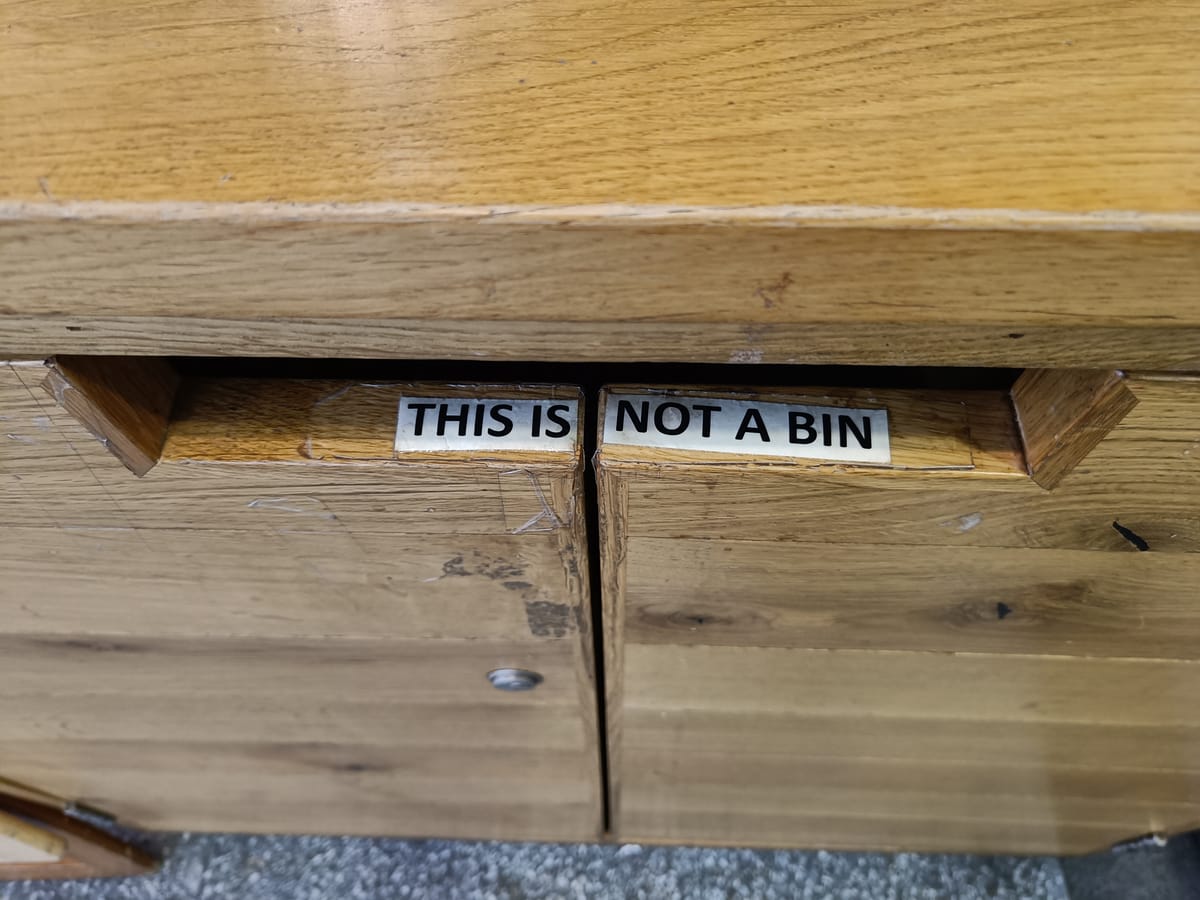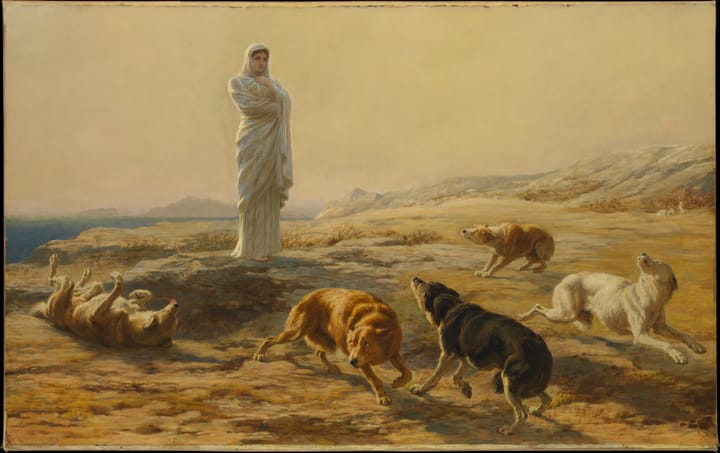week 11 / 2025
No ornate ironies and allusions this week—just a pared-down back-to-basics WEEKNOTES, because I am sick as a dog and it's all I can manage.

Welcome back to WEEKNOTES at Worldbuilding Agency, which lacks a song-lyric lede for reasons which will become apparent.
I was struggling to get myself in gear this week, right from the get-go. That’s not unusual after a week away, but I suspected there might be something more to it—which is why the sudden bloom of a fever-y cough-type-thing on Thursday morning was not entirely surprising. Lousy timing, really, given there’s a lot on the desk at the moment… but what illness is ever well-timed?
Still, worse things happen at sea, and I mostly managed to fail gracefully—which is to say that, when things took longer than expected, I shuffled out some optionals and indulgences to make space for catching up and keeping the deadlines intact on projects where falling short would screw things up for colleagues as well as myself. I’m a bit grouchy about missing a gig on Friday I had a ticket for, but them’s the breaks in Grown-Up Town.
(I'm writing this on Saturday afternoon, and still feeling pretty rotten, though I dare to think the worst might be past.)
Anyway, what got done?
ticked off
- Seven hours on PROJECT PORTON. (Report editing, for the most part. Always nice to see a many-handed collaboration come together on time.)
- Seven hours on PROJECT ADVANTAGE. (Research and rough writing-up of such. The sort of thing that’s still doable when your brain’s a bit foggy.)
- Three hours of admyn. (Probably more, actually, but we can only count what we note down.)
- Two hours of STPLN stuff. (A lecture on the cultural funding landscape in Sweden, which is somehow simultaneously under-legislated and institutionally byzantine? Which, come to think of it, is a pretty good summary of the country in general.)
- Two hours recording an interview with the mighty Sherryl Vint for This Very Website. (Honestly feels weird to describe this as work. Getting a one-to-one seminar with one of my favourite science fiction scholars feels like it should be filed under “ridiculous privileges”, really.)
- Ten hours of undirected writing and reading, as always. (Though the writing was of unusually loose quality, which is one of the ways I got an inkling that I was coming down with something. An underrated aspect of the practice is that it gives you a surprisingly accurate insight into yourself as a holistic system; if something’s not right, you can always tell.)
kinmaking
The monthly Malmö futures folk meet-up happened early on Thursday, though I had to breeze out quite early in order to go to the opticians. Sorry folks!
Also had a chat with Ulrike Kuchner, artist-cosmologist and co-lead of the Artlab at University of Nottingham, who I met last week at the pilot workshop for the Chronoberg Chronicle.
reading
Roger Zelazny’s Lord of Light was on sale at SFbokhandeln last time I went in, which was excuse enough to fill in one of the many gaps in my knowledge of the sf classics. Nowadays I dare say a book like this would be censured for its appropriation of the Hindu pantheon; well, it was the Sixties, maaaaan. But what wonderful writing—way ahead of its genre contemporaries in terms of style and form, and brave enough to not explain everything, leaving the reader to figure out the chronology and the worldbuilding for themselves. It’s often held up as an early entry in the USian New Wave, and justifiably so. Recommended.
a clipping
Friend-of-the-show Tobias Revell has tidied up and published the latest iteration of a talk he’s given numerous times in recent years, which is titled “Design and the Construction of Imaginaries”. Tobias’s ongoing PhD is about the role of technology in the popular imagination, and he uses “AI” as a useful and relevant foil for exploring the question.
Through inevitability, preconceptions, reciprocating aesthetics and designs, and existing science fiction fantasies, we find ourselves in a context where the future is increasingly foreclosed. I want to walk through some specific tools, strategies, and techniques used to address this. Understanding this is crucial for designers and practitioners to challenge their own assumptions about the future and how they might be embedding their preconceptions into their designs.
If you’re engaging in critical practice, you can do both: create commercial products and be critical. How do you raise people’s awareness of these assumptions? How do you challenge them using design as a language?
There’s quite a bit of text, but it’s broken up with Tobias’s typically handsome slides: so come for the erudition, but also expect pithy quotes, wry juxtapositions, and a whole array of weird and interesting tech-art projects that you’ve likely never heard of before.
Right, I’m out of here. Apologies for the relative brevity, but I find it’s hard to write well—or indeed write at all!—when I feel like I’ve been thrown down a few flights of stairs.
This has been the Worldbuilding Agency weeknotes for Week 11 of 2025. Thanks for reading! If you've enjoyed them, it's free to subscribe. If you are already subscribed, please send to a friend who you think might also like it!





Comments ()